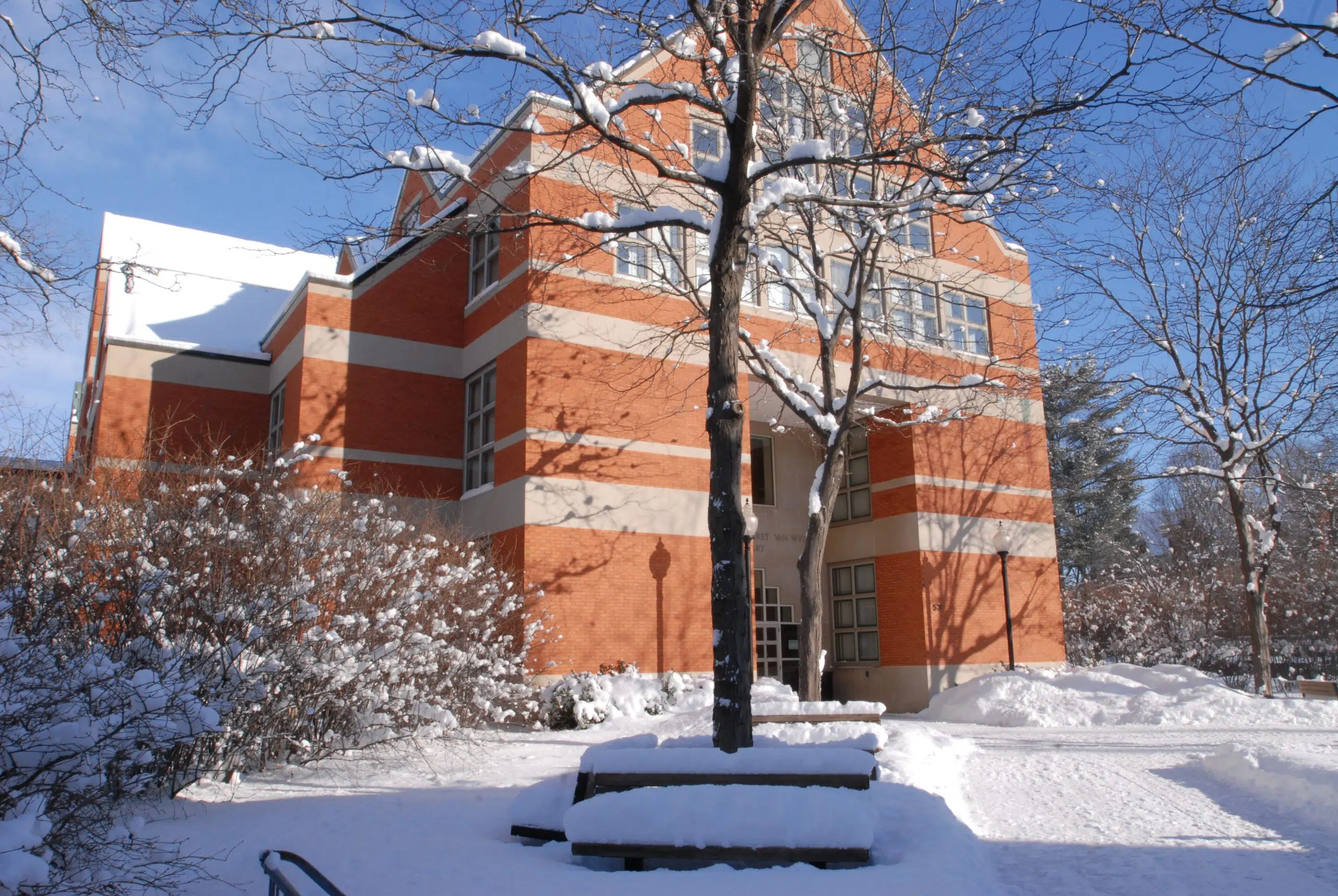HOLLAND (WHTC-AM/FM) Thanks to a $7.5 million state grant, Hope College will expand its wastewater monitoring for the presence of COVID-19 across southwest Michigan for the next two years.
Hope’s program is one of 19 Michigan projects benefitting from $49 million in grants by the Michigan Department of Health and Human Services.
The money comes from the Centers for Disease Control for ongoing development Michigan’s SARS-CoV-2 Epidemiology – Wastewater Evaluation and Reporting Network, which uses locally coordinated projects to conduct wastewater surveillance for COVID-19. Partners include local health departments, tribal nations, wastewater treatment and environmental engineering agencies, colleges and universities, and public, private and academic laboratories.
“Wastewater surveillance is so important to identifying COVID-19 infections and community transmission early, and is especially important as we move to a new phase of fighting this pandemic,” said Dr. Joneigh Khaldun, chief medical executive and chief deputy for health at MDHHS, in the announcement. “If our rates of infection start to increase, this network may provide an early warning sign and help communities target public health actions to prevent further spread.”
Hope’s program, developed and is led by a team of Hope biologists and chemists, was established in August 2020 as a central component of the college’s effort to mitigate the presence of COVID-19 on campus.
Over the last school year, college scientists collected and analyzed wastewater coming from residence halls, cottages and apartments, which were divided into nine residential zones each containing approximately 250 students. Results were returned within 24 hours, and if elevated levels of the virus were detected in a sample, the college then tested that zone’s individual students.
“Wastewater monitoring can detect the presence of COVID-19 before people even realize that they’re infected,” said Dr. Aaron Best, who is the college’s Harrison C. and Mary L. Visscher Professor of Genetics and is overseeing the Hope project. “There were multiple times on campus over the past year that we detected a signal in the wastewater, and could then take appropriate actions to identify cases and mitigate further spread.”
Hope’s campus monitoring is on pause during the college’s summer break and will resume in the fall, although with less frequency, with Best anticipating that each site will be tested three days a week.
Hope has also been conducting testing in partnership with the Holland Board of Public Works and the City of Holland, analyzing samples collected at the city’s wastewater treatment plant. In addition, Hope participated in a fall 2020 pilot project with funding from a $700,000 grant from Michigan’s Department of Environment, Great Lakes and Energy (EGLE) funded from Michigan’s allocation of federal money under the Coronavirus Aid, Relief and Economic Security Act that expanded the college’s 2020-21 program to include the cities of Allegan and Zeeland, and the Allegan County and Ottawa county health departments.
The new grant, which will run through July 31, 2023, will further expand Hope’s program to include six local health departments serving nine counties, including Allegan, Berry, Branch, Calhoun, Eaton, Hillsdale, Kalamazoo, Ottawa and St. Joseph. During 2020-21, the college based its program in a laboratory on campus in the A. Paul Schaap Science Center, but, with the expansion more than doubling the number of samples tested daily from 150 to approximately 360, Hope will establish a second site in space rented at the Michigan State University Bioeconomy Institute in Holland.
Best noted that the statewide effort continues to be relevant because the virus remains present even though infection rates across Michigan have declined.
“I think what the state is doing here is really quite forward thinking,” he said. “They have recognized the value of the information that can be gained about the presence of COVID-19 in an area by wastewater monitoring.”
“You are almost certain to have pockets of COVID-19 activity,” he said. “We’ll also be monitoring for variants, like the Delta variant that is the variant of concern that most people are talking about right now.”
In addition, he noted, wastewater monitoring can detect other viruses or potential causes for concern, so continuing to develop a network now can help speed the response to other outbreaks in the future.
The college’s wastewater testing program builds on expertise developed through water-quality research conducted at Hope across the two decades. In addition to Best, it is led by faculty members Dr. Benjamin Kopek, associate professor of biology; Dr. Brent Krueger, professor of chemistry; and Dr. Michael Pikaart, associate professor of chemistry. The additional staff of program and laboratory managers and technicians includes recent Hope graduates who had participated in the research as students as well as others.









